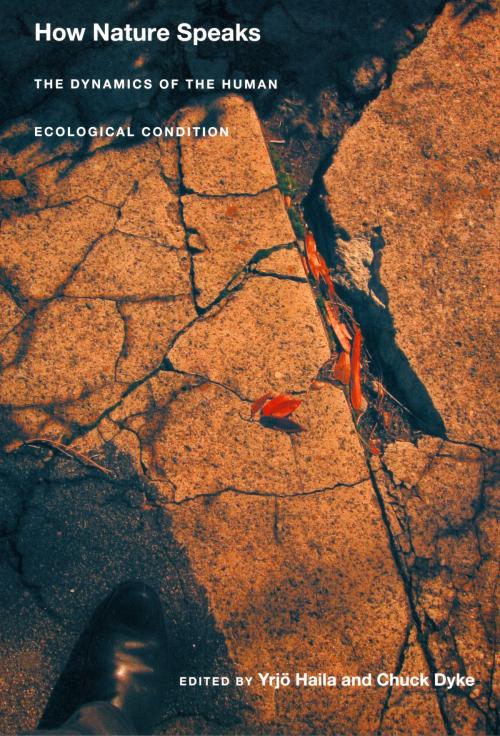How Nature Speaks
The Dynamics of the Human Ecological Condition
Nonfiction, Social & Cultural Studies, Social Science, Human Geography| Author: | Arturo Escobar, Dianne Rocheleau | ISBN: | 9780822387718 |
| Publisher: | Duke University Press | Publication: | March 17, 2006 |
| Imprint: | Duke University Press Books | Language: | English |
| Author: | Arturo Escobar, Dianne Rocheleau |
| ISBN: | 9780822387718 |
| Publisher: | Duke University Press |
| Publication: | March 17, 2006 |
| Imprint: | Duke University Press Books |
| Language: | English |
How Nature Speaks illustrates the convergence of complexity theory in the biophysical and social sciences and the implications of the science of complexity for environmental politics and practice. This collection of essays focuses on uncertainty, surprise, and positionality—situated rather than absolute knowledge—in studies of nature by people embedded within the very thing they purport to study from the outside. The contributors address the complicated relationship between scientists and nature as part of a broader reassessment of how we conceive of ourselves, knowledge, and the world that we both inhabit and shape.
Exploring ways of conceiving the complexity and multiplicity of humans’ many interactive relationships with the environment, the contributors provide in-depth case studies of the interweaving of culture and nature in socio-historical processes. The case studies focus on the origin of environmental movements, the politicization of environmental issues in city politics, the development of a local energy production system, and the convergence of forest management practices toward a dominant scheme. They are supported by explorations of big-picture issues: recurring themes in studies of social and environmental dynamics, the difficulties of deliberative democracy, and the potential gains for socio-ecological research offered by developmental systems theory and Pierre Bourdieu’s theory of intentionality.
How Nature Speaks includes a helpful primer, “On Thinking Dynamically about the Human Ecological Condition,” which explains the basic principles of complexity and nonlinear thinking.
Contributors. Chuck Dyke, Yrjö Haila, Ari Jokinen, Ville Lähde, Markus Laine, Iordanis Marcoulatos, John O’Neill, Susan Oyama, Taru Peltola, Lasse Peltonen, John Shotter, Peter Taylor
How Nature Speaks illustrates the convergence of complexity theory in the biophysical and social sciences and the implications of the science of complexity for environmental politics and practice. This collection of essays focuses on uncertainty, surprise, and positionality—situated rather than absolute knowledge—in studies of nature by people embedded within the very thing they purport to study from the outside. The contributors address the complicated relationship between scientists and nature as part of a broader reassessment of how we conceive of ourselves, knowledge, and the world that we both inhabit and shape.
Exploring ways of conceiving the complexity and multiplicity of humans’ many interactive relationships with the environment, the contributors provide in-depth case studies of the interweaving of culture and nature in socio-historical processes. The case studies focus on the origin of environmental movements, the politicization of environmental issues in city politics, the development of a local energy production system, and the convergence of forest management practices toward a dominant scheme. They are supported by explorations of big-picture issues: recurring themes in studies of social and environmental dynamics, the difficulties of deliberative democracy, and the potential gains for socio-ecological research offered by developmental systems theory and Pierre Bourdieu’s theory of intentionality.
How Nature Speaks includes a helpful primer, “On Thinking Dynamically about the Human Ecological Condition,” which explains the basic principles of complexity and nonlinear thinking.
Contributors. Chuck Dyke, Yrjö Haila, Ari Jokinen, Ville Lähde, Markus Laine, Iordanis Marcoulatos, John O’Neill, Susan Oyama, Taru Peltola, Lasse Peltonen, John Shotter, Peter Taylor















